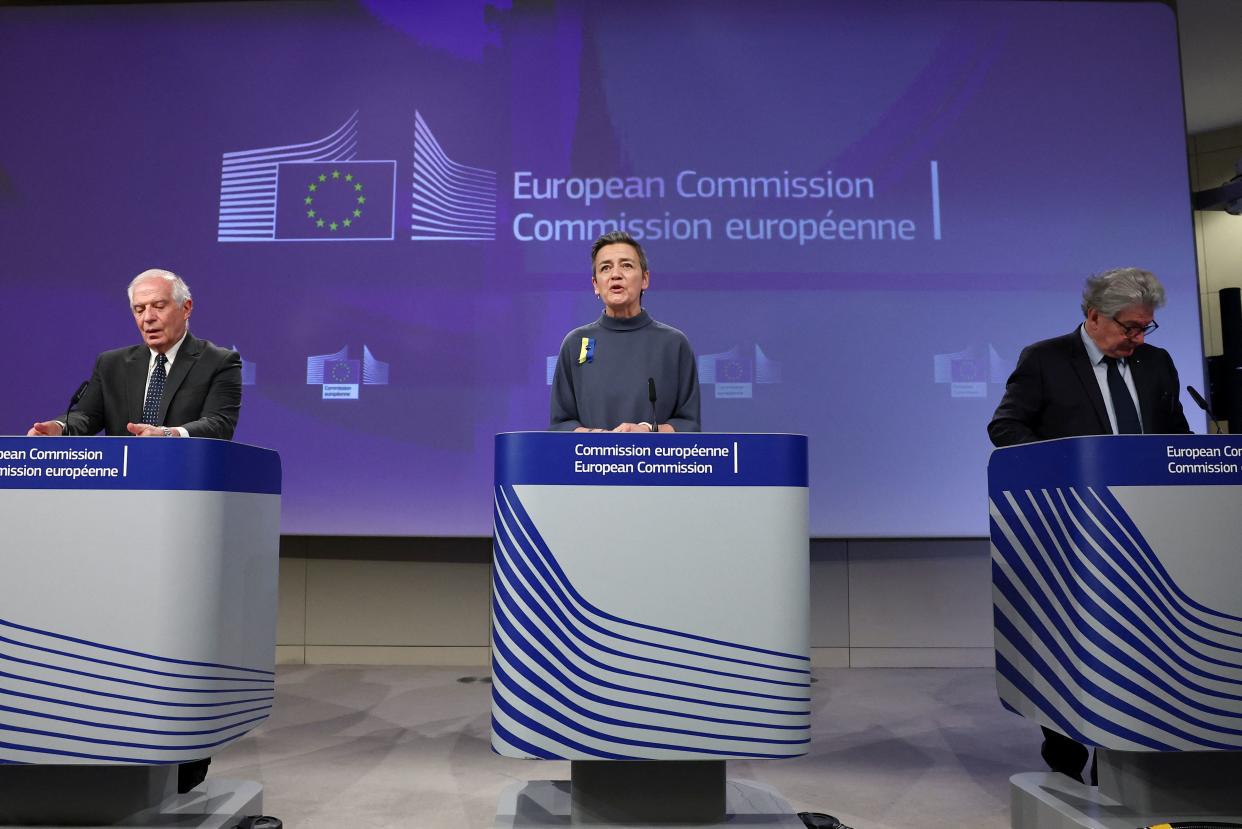EU launches first defense industrial strategy to reduce reliance on US

Semafor Signals
Supported by
Insights from Le Monde, The Guardian, and Politico
The News
The EU launched its first-ever defense industrial strategy on Tuesday, calling for the bloc’s 27 member states to purchase more weapons from European countries in the face of rising aggression from Russia.
It hopes to shift away from a reliance on U.S. arms: Since 2022 the bloc has purchased 75% of its military equipment from non-European companies, mostly in America, Le Monde reported.
“After decades of under-spending, we must invest more on defense, but we need to do it better and together,” the EU’s top diplomat Josep Borrell said at a press conference, while a French EU official noted: “We need to change the paradigm and move into war economy mode.”
SIGNALS
The plan may improve coordination but lacks funding
While the proposal will help member states coordinate their defense spending, the planned €1.5 billion ($1.5 billion) set aside is “unlikely to have a big impact,” Guntram Wolff, a senior fellow at Bruegel, a Brussels-based think tank, told The Guardian. Ultimately, the plan is limited by being “a non-binding strategy with a limited pot of money,” Sascha E. Ostanina, an EU security expert at the Hertie School, a university in Berlin, wrote on X. The strategy — which aims for EU countries to procure at least 50% of their defense spending within the bloc by 2030 — will take several years “to demonstrate qualitative changes in European defence industrial cooperation,” she added. One defense industry figure told Le Monde that the plan was unlikely to succeed without an influx of funding.
Funding through Eurobonds remains divisive within the bloc
One model for funding a European defense strategy has been to issue joint debt via Eurobonds to approach the €100 billion-mark some experts say will be needed. The idea has support from France, Estonia, and Belgium, but more frugal countries such as Germany and the Netherlands have resisted the idea. “The commission doesn’t have to incentivise this. Governments will place orders, defense companies will invest in capacity and sell their stuff,” one EU official told the Financial Times. Max Bergmann, an expert on EU defense policy at the Center for Strategic and International Studies, told The Guardian that European defense is in a “disastrous state,” calling for the bloc “to just borrow the damn money through Eurobonds.”
EU aims to reduce decades-long reliance on US arms industry
The defense plan is part of a wider effort to reduce Europe’s reliance on the U.S. amid widespread concern about whether Washington will remain a reliable ally if Donald Trump were elected president again. “We need to get that transatlantic balance right, irrespective of election electoral dynamics in the US. We must take more responsibility for our own security, while, of course, remaining fully committed to our NATO alliance,” European Commission Vice President Margrethe Vestager said. While the EU has long done little to foster its defense industry, initiatives to improve defense cooperation within Europe “have often been met by fierce opposition from the United States,” two experts wrote in Foreign Affairs. “Efforts by Europe to get its industrial act together are met by stiff resistance by American administrations, which channel the concerns of U.S. companies about being locked out of the European market,” they added.

